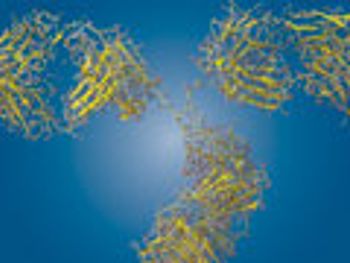
The body’s over-editing of synaptic interactions is recognized as a probable cause of schizophrenia in a landmark study.

The body’s over-editing of synaptic interactions is recognized as a probable cause of schizophrenia in a landmark study.

Scientists at Rice University have developed a method to control the infectivity of viruses and gene delivery to the nuclei of target cells.

MedImmune and 3M Drug Delivery Systems collaborate to develop toll-like receptor (TLR) agonists for immuno-oncology.

Six grants from the NIH will help identify variants in the genome’s regulatory regions that affect disease risk, using new computational approaches.

GSK announces it will invest $95 million to launch a US-based non-profit research institute, Altius, to research technologies and approaches in understanding gene control.

Treatment with monoclonal antibodies that inhibit the activity of PCSK9 was shown to significantly lower LDL cholesterol levels and have a strong cardiovascular benefit.

The agency will employ a ring vaccination method similar to the one used to eradicate smallpox.

MedImmune will provide funds and access to monoclonal antibodies to seven postdoctoral associates for the creation of protein measurement and characterization tools.

Mylan announced a partnership with Theravance Biopharma to develop and commercialize TD-4208, a novel investigational COPD treatment.

Syncona and Kite Pharma announced separate investments into T-cell therapies to fight cancerous tumors.

The Yale School of Medicine and Gilead will continue their research on cancer targets for a minimum of three additional years.

Secukinumab is the first IL-17A inhibitor to meet its primary endpoint in two Phase III trials for patients with ankylosing spondylitis.

Partnership is awarded for licensing of low-cost vaccine for the treatment of bacterial meningitis.

USP expresses its support for a consensus-based global approach to the naming of biologics.

Researchers from Harvard have reproduced the structure, functions, and cellular make-up of bone marrow, to create a device known as bone marrow-on- a-chip.

Johns Hopkins researchers use stem cells derived from human body fat to deliver treatment for brain tumors.

NIH study reveals a new cancer immunotherapy method could be effective against a range of cancers.

The Pediatric Clinical Research Group initiative expands to include pediatric research sites.

Research reveals that proteins involved in autism interact with many more partners than previously known.

University of Michigan study demonstrates how a Silly Putty ingredient could advance stem cell therapies.

Genetic evidence supports role of APOBEC gene family in cancer development.

The authors review the angiopoietin pathway as an alternative for safer and more efficacious anti-angiogenic therapeutics.

A conversation with Armand Keating, the Epstein Chair in Cell Therapy and Transplantation at the University of Toronto prior to his presentation at Bio 2013

Recent research examines the sequence of events underlying cellular reprogramming, which may aid in better control of the production of induced pluripotent stem cells.

Creating an effective nucleic acid-based vaccine requires protecting the fragile nucleic acid from degradation, effective transfection of the targeted cells, and producing high enough levels of antigen to evoke a robust immune response.